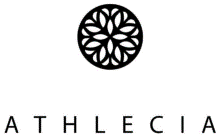In a recent decision concerning Gap's ATHLETA athleisure brand and the competing brand ATHLECIA, the High Court has provided useful guidance on how the inclusion and placement of figurative elements in a trade mark might impact a likelihood of confusion, while also demonstrating some of the considerable advantages of litigating in England and Wales. The judgment offers some interesting takeaways for brands and practitioners on using variations of a registered trade mark, on whether use of a mark on social media platforms constitutes 'genuine use' in the UK, and on strategically educating consumers on the desired pronunciation of a trade mark.
Background
The Claimant, Athleta, is a US athleisure brand founded in 1998 and now owned by apparel company, Gap Inc. Despite being well established in the US market, Athleta has only fairly recently entered the UK market, with its products sold through retailers such as John Lewis and Zalando.
Sports Group Denmark (SGD) sells athleisurewear under the ATHLECIA signs, set out below. Athleta alleged that SGD's use of the ATHLECIA signs infringed two of its UK registered trade marks (one word and one figurative mark) which had, on Brexit, been cloned from their EUTM counterparts. It also argued that the sale of certain of SGD's goods amounted to passing off in relation to those marks, as well as in relation to two iterations of the figurative ATHLETA mark (one featuring bolder font and an inverted pinwheel, the other featuring a bolder font and a displaced purple inverted pinwheel).
SGD sought (i) revocation of the ATHLETA marks due to non-use; and (ii) invalidation of the ATHLETA marks on the grounds that they were descriptive and non-distinctive.
The mark
|
Athleta's marks
|
The ATHLECIA Signs
|
ATHLETA
(ATHLETA Word Mark) (registered) |
ATHLECIA |
|

(ATHLETA Combination Mark) (registered)
|

(ATHLECIA Device) |
|

Purple Pinwheel (unregistered)
|

(First ATHLECIA Combination)
|
|

(ATHLETA Dark Pinwheel)(unregistered)
|

(Second ATHLECIA Combination)
|
The judgment
On trade mark infringement, the Court found that the ATHLECIA signs (other than the ATHLECIA Device) were similar to the ATHLETA marks, and that there was a likelihood of confusion between the ATHLETA Combination Mark and the Second ATHLECIA Combination Mark in relation to clothing. However, there was no likelihood of confusion in relation to the ATHLETA Word Mark and ATHLECIA (neither being found distinctive enough to garner the broad scope of protection attributable to highly distinctive marks like KODAK) or in relation to the ATHLETA Combination Mark in relation to other signs or other goods and services. The difference in outcome as between the word marks and the Combination Mark was that the roundel made a difference to the overall assessment in that it increased the likelihood of confusion.
Though the parties had differing views on how ATHLETA and ATHLECIA should be pronounced, neither provided evidence to support their positions. While the Court was not asked to determine which pronunciation would likely be employed by UK consumers, it took a view that any of the possible pronunciations could be adopted, particularly since neither brand had educated its consumers on how it wanted its name to be pronounced. In any case, the Court took the view that the marks were highly aurally similar, regardless of which pronunciation was adopted (as the first syllable was identical, the last syllable sounded similar, and the middle formed only a minor part of the overall aural impression).
The Court also rejected Athleta's passing off claim because, although it owned goodwill in the ATHLETA Word Mark through its sales in John Lewis at the time (but not in the Combination Marks), the evidence before the Court did not establish any misrepresentation by SGD, notwithstanding that some of SGD's own employees had expressed concern about the similarity of the ATHLECIA signs to ATHLETA (the Judge rejected the argument that SGD had 'sailed close to the wind' or 'lived dangerously' as not having been made out on the facts).
SGD's counterclaim for invalidity of the ATHLETA marks failed in its entirety, with the Court describing some of SGD's evidence as "flawed" and not "relevant or helpful". Interestingly, having been asked to determine how validity should be assessed in relation to cloned marks post the Brexit transition period, the Court held that this should be from the perspective of the average consumer in the UK, rejecting SGD's submissions that the perspective of EU consumers should have some bearing on the invalidation of cloned marks.
However, SGD's counterclaim for revocation for non-use succeeded in part against the ATHLETA Word Mark (which was partially revoked in relation to all goods except bags, clothing and headgear) and against the ATHLETA Combination Mark (which was partially revoked in all goods except clothing). The Court held that, following previous judgments concerning infringement, including the recent UK Supreme Court judgment in Lifestyle Equities v Amazon UK (discussed in our article here), use of a mark on a non-UK website must target UK consumers (and they would have to "consider that it is targeted at them") for the purposes of establishing or maintaining a market in the UK in order to be "use" for the purposes of defeating a revocation action: "[p]urely foreign use cannot count as relevant use for the purposes of a United Kingdom revocation for a non-use counterclaim". This also means that use on websites such as Facebook, Twitter and Instagram will not amount to genuine use in the UK unless it is shown that those postings were targeted at consumers in the UK. The Court found that the ATHLETA brand was clearly actively used in the US, but this was not relevant in assessing genuine use in the UK (despite approximately $60,000 of sales into the UK/EU annually via the US website, and over 100,000 UK visitors a year to the US website).
Similarly, use of variants which would "strike the reasonably circumspect consumer" cannot be used to prove use of a registered mark: in this case, that meant that, while use of the ATHLETA Dark Pinwheel could assist Athleta in demonstrating genuine use of the ATHLETA Combination Mark to resist a non-use revocation attack, use of the ATHLETA Purple Pinwheel would not (not because of the use of purple, but because of the different placement of the roundel, which was seen to alter the distinctive character of the mark). The Court also took the view that sunglasses are not "clothing accessories", but that gloves and scarves are.
Practical considerations
Cases like these often turn on their facts and do not inform the conduct of future proceedings in a material way. This decision, however, has some interesting takeaways for practitioners.
First, eleven witnesses of fact were cross-examined in only a three-day trial, in testament to the efficiency of the English legal system. The Court was also pragmatic about the reality of giving evidence and was not fazed or distracted by one witness's repeated use of "whatever" in response to questions under cross-examination: while Athleta sought to characterise this as an unduly casual attitude to the proceedings, the Court commented only that the witness "plainly did not wish to be in court – but he cannot be faulted for that".
Owners of earlier marks also now have a useful example of the benefits of allowing customers to pronounce their marks as they see fit, as this provides a greater number of possibilities for pronunciation, giving rise to greater potential for aural similarity and consequently, infringement. In contrast, owners of new potentially infringing marks may want to ensure that their marks are consistently differentiated from earlier marks in how they are pronounced as an attempt to rebut claims of infringement by earlier rights holders.
Brands operating online should also ensure that they have records of where they are targeting their goods and marketing spend, whether to show use in a particular territory or to defeat allegations of infringement brought there. Mere posting on social media or a website, without 'targeting' consumers in a particular territory, will not of itself be sufficient to demonstrate an attempt to create or maintain a market for goods wherever that content is accessible, but nor is it likely to amount to infringement either.
Finally, we think this must be one of the few trade mark cases where each counsel arguing the case held a PhD (three in total, for a three-day trial). Nothing in the judgment indicates any particular reason for this, but it is another sign of the very high calibre of advocates who can present all kinds of IP cases in the English Courts.
Our Retail, Media and Leisure teams would be very happy to discuss any of the issues raised in this article or about your IP strategy more generally. Please reach out to the authors if you would like to arrange an introduction.